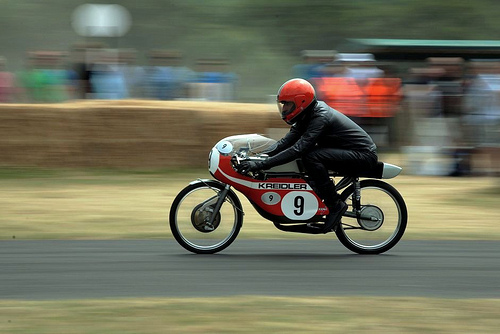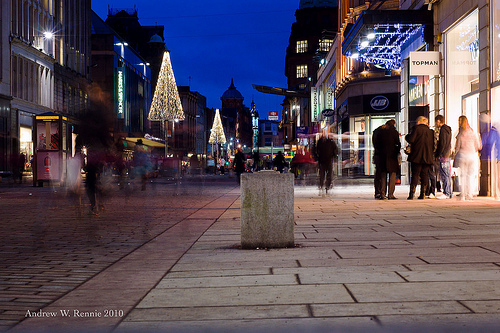Learn Ten Tips for Better Photography
Capturing a good photograph is a lot easier than people think. It does not require an expensive camera or a lot of experience. Just take the time to learn these ten photographic tips and apply them to your own photography. Oh, you have to have fun and practice too.
1 – Fill the Frame
When you compose your photographs try to fill all the space in the viewfinder that is available to you. This minimizes the background and other distractions around your subject.
2 – Study Shapes and Forms
Understanding shape and form is fundamental to all visual art, including photography. Learn to study shape and form to see the most flattering angle to photograph you subject. Shape and form is everywhere. This is a subject worth studying more about.
3 – Motion
Learn to avoid all motion when photographing a stationary subject. Your photograph will be less impressive if something is moving while you are capturing something stationary.
4 – Color Contrast

Some of the most dramatic photographs are shot in black and white, also called monochrome. It’s the contrast between the colors in your image that makes your subject stand out. Imagine a bright beach ball contrasted with the sea, sky, and sand.
5 – Get in Close
This tip goes hand-in-hand with tip #1 above, “Fill the Frame”. A common mistake is not being close enough to the subject. It’s fairly easy to resize a well taken image. However, you cannot enlarge a picture with a distant object without compromising image quality.
6 – Shutter Lag
Shutter lag is the time between the moment you press the shutter release and the shutter curtain trips to capture the image. The more higher end cameras have virtually no shutter lag. The greater the shutter lag becomes an issue when you want to shoot subjects that are in motion, like action shots. So you will have to anticipate where your subject will be and press the shutter release while keeping shutter lag in mind.
7 – Panning

Is the technique of using a slow shutter speed and following your subject as the subject moves across the scene. Done correctly the subject stays in focus while the rest of the frame is streaked from the camera’s motion. This is a way of showing motion in a still image. It’s best to take multiple shots in a series it betters your chances of getting a well panned photograph.
8 – Continuous Shooting
Back in the days of film you would have needed a motor drive for your camera to shoot continuously – the camera takes pictures as long as you’re holding the shutter release down. Now, virtually all DSLR cameras have a continuous shooting mode. Learn to shoot continuously to capture a series of action shot, like a baseman running and sliding home, or to take the multiple shots while panning that is described above.
9 – Night Time Photography

A well done night time photograph is very nearly a magical thing to see! Most images that look like night time shots are actually taken just after sun down while there still plenty of available light. The trick is to expose for the lights that are turn on in building and under expose the rest of the scene. Under exposing the twilight sky will render it much darker than it really is.
10 – Read the Manual
Seriously. Today’s digital cameras are pretty complex pieces of equipment and every model has it’s own characteristics. Read the manual to learn the tricks of your specific camera. The leading camera manufacturers even offer their manuals electronically online. Consider downloading a copy to put on your lap top or smart phone so you can have easy access to it in the field.
What about you, do you have any photography tips you want to share?
Photo Credits:
“Color Contrast”, flickr.com/25133826@N04 (No longer active on Flickr)
“Panning”, flickr.com/velsfi
“Night Time”, flickr.com/andrewrennie